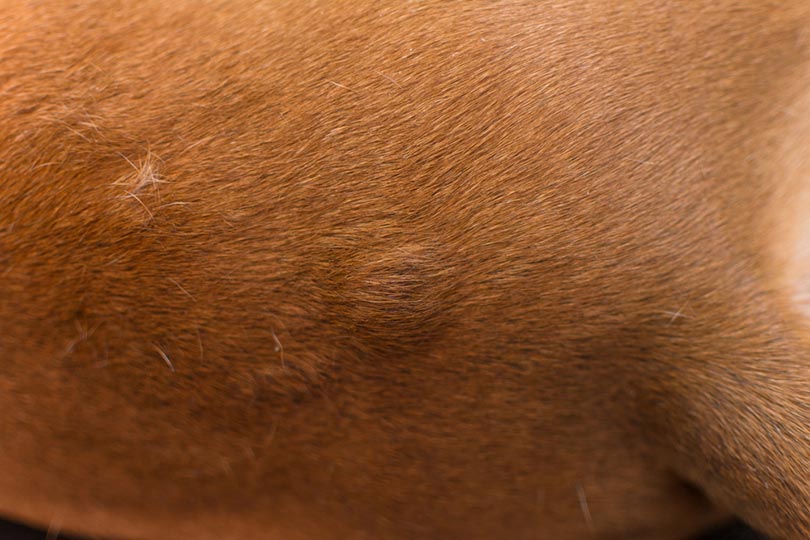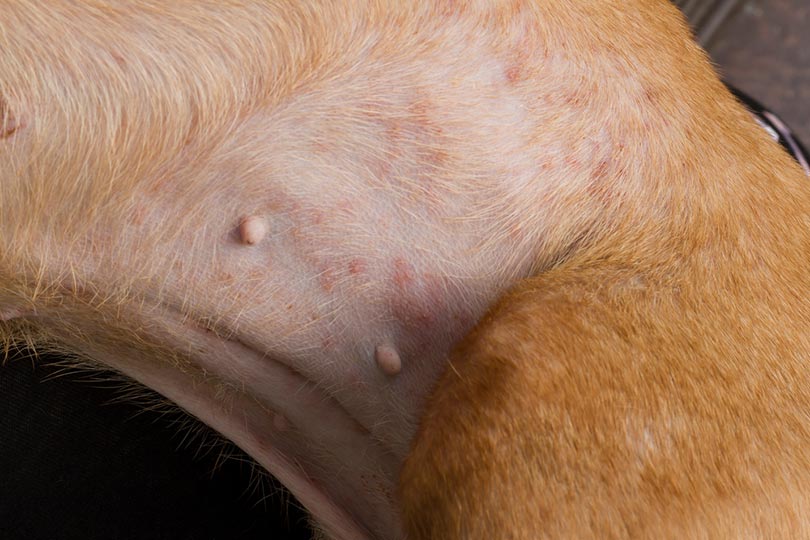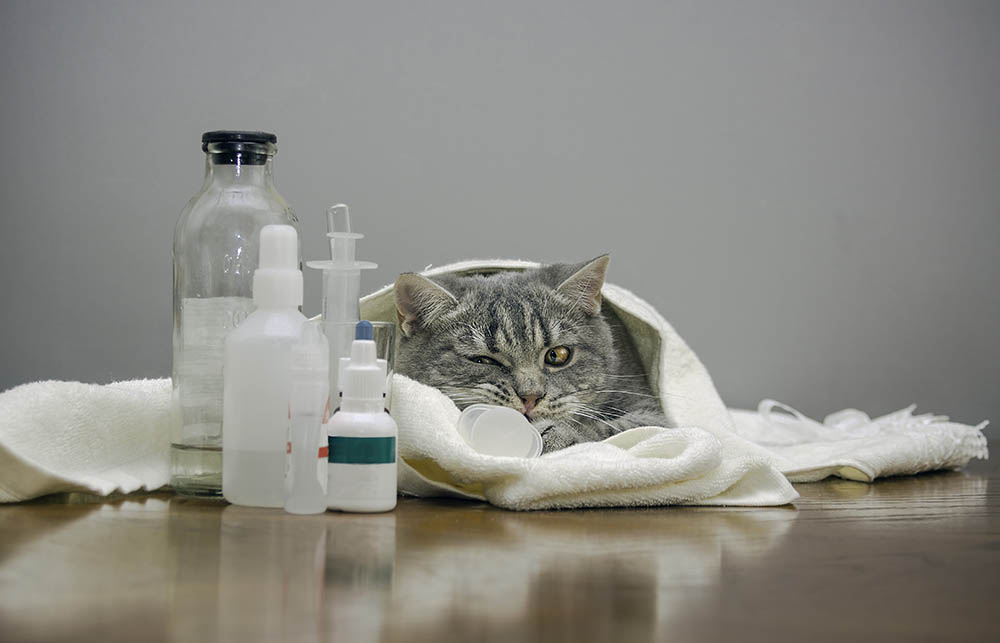Why Are There Lumps & Bumps On My Dog’s Skin? (Vet Answer)
Updated on

It is not uncommon to find lumps and bumps on the skin of dogs, regardless of their age. Dogs can be real troublemakers and are known to find their fair share of scrapes and adventures—many of which can lead to lumps and bumps along the way. Some lumps and bumps even become more common as dogs get older. Fortunately, lumps and bumps in your dog’s skin are, generally, not an emergency or cause for alarm.
Read on to learn more about some common lumps and bumps in dogs’ skin, and the likely causes behind them.
Reasons Your Dog Has Lumps and Bumps on Their Skin
1. Allergies
Allergies can cause small lumps on the skin of your dog. Commonly, these lumps are raised and known as hives. This reaction will often disappear, though sometimes medications can be needed in more severe reactions.
Dogs can have allergies to insect bites and stings, plants, and various types of food, amongst other things.
2. Warts
Warts can be caused by a virus and may present as a single (or multiple) small raised skin lumps and bumps. In more pronounced cases, they can be quite unsightly.
3. Pyoderma
Pyoderma refers to bacterial infections of the skin, which is common in dogs, and less common in cats. Infected skin can develop pimple-like bumps, especially in sensitive areas—like around your dog’s tummy, armpits, and face. This can be especially common in puppies.
4. Fatty Masses (Lipomas)
Sometimes, fatty deposits just under a dog’s skin, called lipoma, can take the form of a bump. Generally, they are not a concern, as they don’t cause pain or discomfort to your dog, nor should they bleed or get infected. Lipomas can occur anywhere on the body, and, for the most part, are just there. Often, they occur in older dogs, and more can develop with time.
5. Skin Tags
Small skin tags can look like bumps on a dog’s skin. Fortunately, they are generally harmless.
6. Skin Cancers
Various types of skin cancers in dogs can present as lumps and bumps—including mast cell tumors, histiocytomas, and others.
Other Things That Cause Lumps and Bumps
Ticks
Believe it or not, ticks actually attach to the skin long enough that sometimes they look and feel like a bump—more so if there are multiple ticks present.
Bones
Bony prominences, especially in the head, tail, and hips, can feel like bumps in the skin—especially when dealing with puppies, or if your dog is on the skinny side.
Cysts
Cysts in the skin or hair follicles can lead to bumps. Cysts can appear in the skin, forming from blocked or overexuberant hair follicles, which can present as lumps all over the skin.
What To Do if You Find a Lump or Bump on Your Dog’s Skin?
The first thing you should do is try to get a photo of where on your dog’s body the lumps or bumps are occurring, as well as of the lump itself. This makes it easier to show your vet when you get to the clinic, as lumps and bumps can sometimes disappear or minimize by the time you get there. Often, a vet can look at a photo and let you know that the lump is actually normal—saving you and your dog a trip to the vet’s office.
Conclusion
Skin lumps and bumps can be relatively common in dogs of all ages. The good news, however, is that they are generally not an emergency or life-threatening. Most times, they are treatable and can be monitored at home, depending on the underlying cause.
Remember—it is never a bad thing to regularly check your pup for lumps, even if what you find actually turns out to be normal. Better to be safe than sorry!
See Also:














